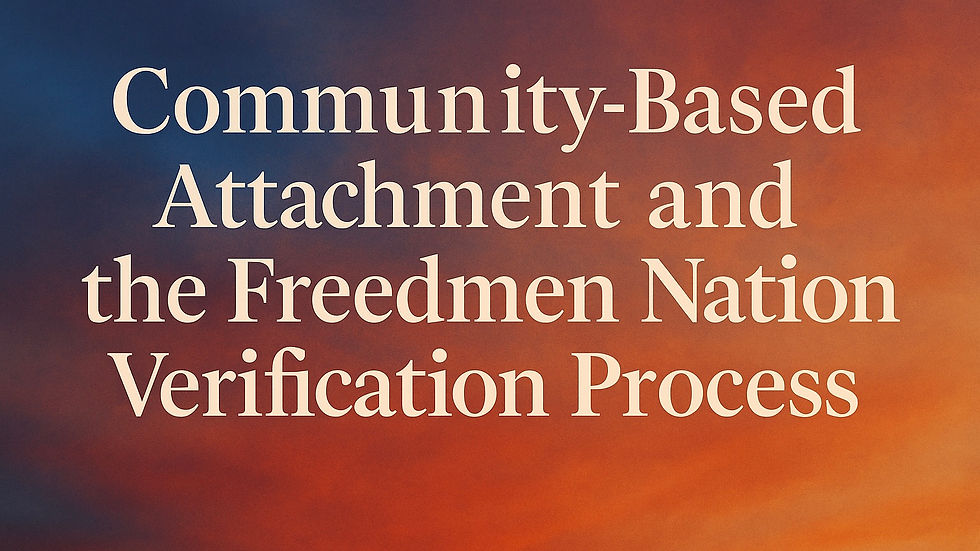Why Freedmen Status Cannot Be Defined by Commercial DNA or “Sub-Saharan” Labels
- Freedmen Nation
- 1 day ago
- 2 min read

The Core Distinction: Status, Not Lineage
Freedmen identity is a matter of legal status, not genetic lineage.
It was established through U.S. emancipation law, federal documentation, and post-1865 government records that identified and recorded the formerly enslaved and their lawful descendants.
No algorithm, genome project, or consumer DNA company can redefine that standing. The Freedmen classification exists within U.S. jurisdictional history — as a legal category, not a racial or continental one.
The Misuse of Commercial DNA
Commercial DNA testing is often presented as scientific authority, but its structure is entertainment-based. These tests do not prove descent or legal status — they measure population similarity through algorithmic comparison.
European data within these systems is subdivided into dozens of national and ethnic clusters. African data, by contrast, is aggregated under the single, imprecise label “Sub-Saharan.”
That imbalance creates distortion rather than accuracy. It reflects sampling density, not ancestral truth.
Even more telling are the disclaimers these companies publish: their results “may be inaccurate or incomplete” and are “not for legal or genealogical use.”
The Legal Foundation of Freedmen Status
Freedmen status derives entirely from documented legal evidence — including Bureau of Refugees, Freedmen, and Abandoned Lands records, post-emancipation censuses, and other federal verification mechanisms.
The Freedmen Reparations Fund Trust recognizes this framework as the only lawful basis for establishing verification. DNA results, genetic percentages, or geographic ancestry inferences hold no evidentiary value in the determination of status.
Courts and agencies affirm documentation — not data modeling — as the standard of proof.
The “Sub-Saharan” Problem
The term “Sub-Saharan” has no legal, genealogical, or cultural standing within the Freedmen record.
It is a colonial-era construct that collapses hundreds of distinct African nations and societies into a single racial category, erasing specific histories and regional diversity.
Because of this, the Freedmen Reparations Fund Trust maintains that the term “Sub-Saharan” should never be used in reference to Verified Freedmen or any classification derived from the American emancipation record.
When addressing Freedmen matters — whether in research, journalism, or data systems — this label must be fully excluded.
Why Records Still Reign
The Freedmen classification stands on verifiable U.S. documentation:
Federal and state records after 1865
Freedmen’s Bureau files
1870 and 1880 census records
Legally recognized family descent from persons emancipated under U.S. jurisdiction
These are the evidentiary pillars that define and protect Freedmen status.
DNA, by contrast, is speculative, biased by dataset imbalances, and commercially motivated. It cannot establish status, standing, or rights under the law.
Bringing the Focus Back to Law
Freedmen identity is jurisdictional, documentary, and lawful — not biological, continental, or algorithmic.
When commercial or academic institutions attempt to define it through generalized African ancestry or “Sub-Saharan” framing, they step outside both history and law.
To preserve clarity and dignity, the public conversation must return to its rightful foundation: the documented legal status of Freedmen, as established in the United States after 1865.



Comments